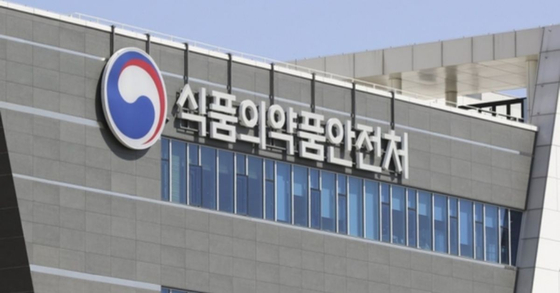The expert advisory group of the Ministry of Food and Drug Safety said that Chong Kun Dang had not proved the therapeutic effect of the COVID-19 treatment “Napabeltan” (ingredient name napamostatmesylate), which is being developed by Chong Kun Dang, and recommended that additional clinical results be submitted and approved. It was expected to be the second domestic treatment, but it was not approved for conditional approval.

View of the Ministry of Food and Drug Safety. yunhap news
On the 17th, the Ministry of Food and Drug Safety announced the results of the’Verification Advisory Group’, the first advisory meeting on Napa Beltan’s approval for treatment of Corona 19.
The advisory group was attended by five people, including an infectious medicine specialist and a clinical statistics expert, as well as four people, including the general review team of the chemotherapy agent review team at the Corona 19 Crisis Response Support Division inside the Ministry of Food and Drug Safety, and the clinical review team.
As a result of evaluating the effectiveness based on data from a phase 2 clinical trial conducted in Russia, the advisory group found that the time taken to clinical improvement after 10 days of Napaveltanju administration in the test group and the control group was not different from 11 days in both groups. Revealed. Based on this, it was concluded that “the validity was not proven”. In the additionally evaluated virus test results, the time to transition from positive to negative was 4 days in both groups, and there was no difference.

Chong Kun Dang headquarters located in Chungjeong-ro, Seodaemun-gu, Seoul. Photo provided by Chong Kun Dang
The Ministry of Food and Drug Safety said, “As a result of an additional analysis of some specific patient groups with an early warning score of 7 or more, the clinical improvement time showed a difference between 11 days in the test group and 14 days in the control group.” The early warning score is an index evaluated based on seven clinical variables such as respiratory rate, oxygen saturation, heart rate, and blood pressure. However, “in order to prove the clinical improvement effect in the patient group, a clinical trial must be carried out according to a predefined hypothesis and a statistical test must be performed.” The results indicated that exploratory use is appropriate. Regarding safety, he said there were no unexpected adverse reactions.

Chong Kun Dang Napa Bell Tanju. Photo courtesy of Chong Kun Dang
The Ministry of Food and Drug Safety said, “It is not appropriate to approve this drug only with the results of the Phase 2 clinical trial submitted, and recommended that additional clinical results to confirm the treatment effect be submitted and reviewed for approval.”
The Ministry of Food and Drug Safety said, “According to the results of the verification advisory group meeting, the Central Pharmacy Review Committee meeting, which is the next step in the triple consultation process for COVID-19 treatment and vaccine, will not be held. Plan”.
Earlier on the 8th, Chong Kun Dang applied for conditional approval of Napa Beltan and approval of phase 3 clinical trials to the Ministry of Food and Drug Safety, raising expectations that it will secure the title of the 2nd treatment following Celltrion’s “Rekirona,” the first treatment. Chong Kun Dang confirmed that napa veran, a treatment for pancreatitis, is effective in treating Corona 19, and developed it as a treatment for patients with severe high-risk groups. Last year, it was announced that Napaveltan had significantly improved the treatment period and treatment rate by conducting phase 2 clinical trials on 104 severely ill patients with Corona 19 in Russia last year. Initially, only the results of phase 2 clinical trials were obtained, and conditional permission was applied for later phase 3 clinical trials.
Reporter Hwang Soo-yeon [email protected]
![]()
